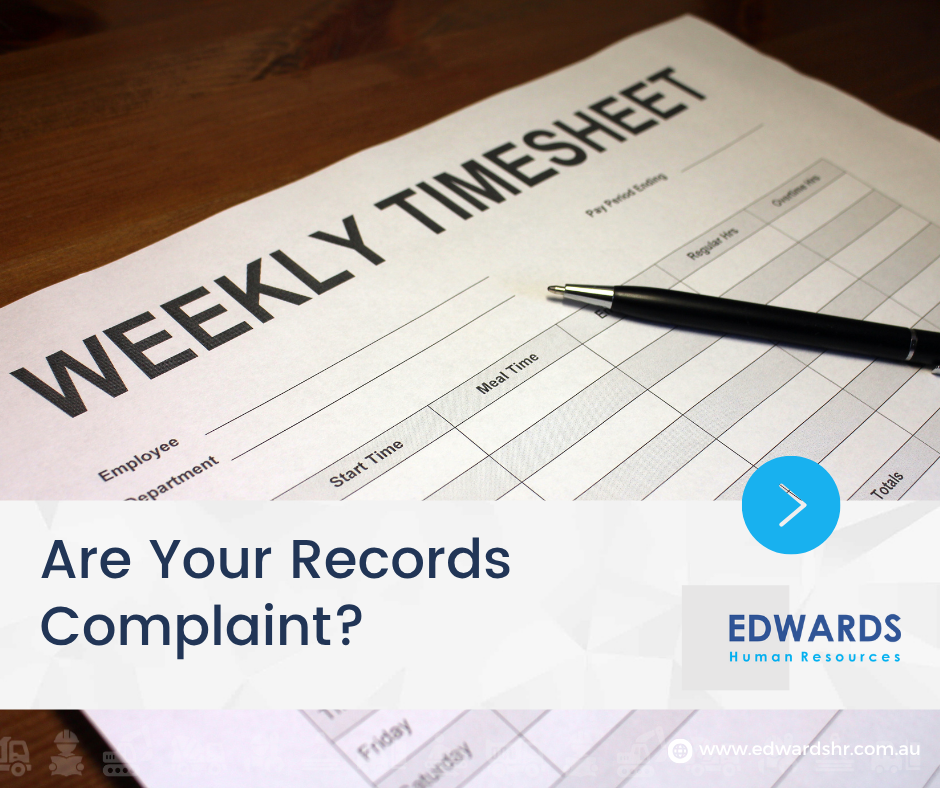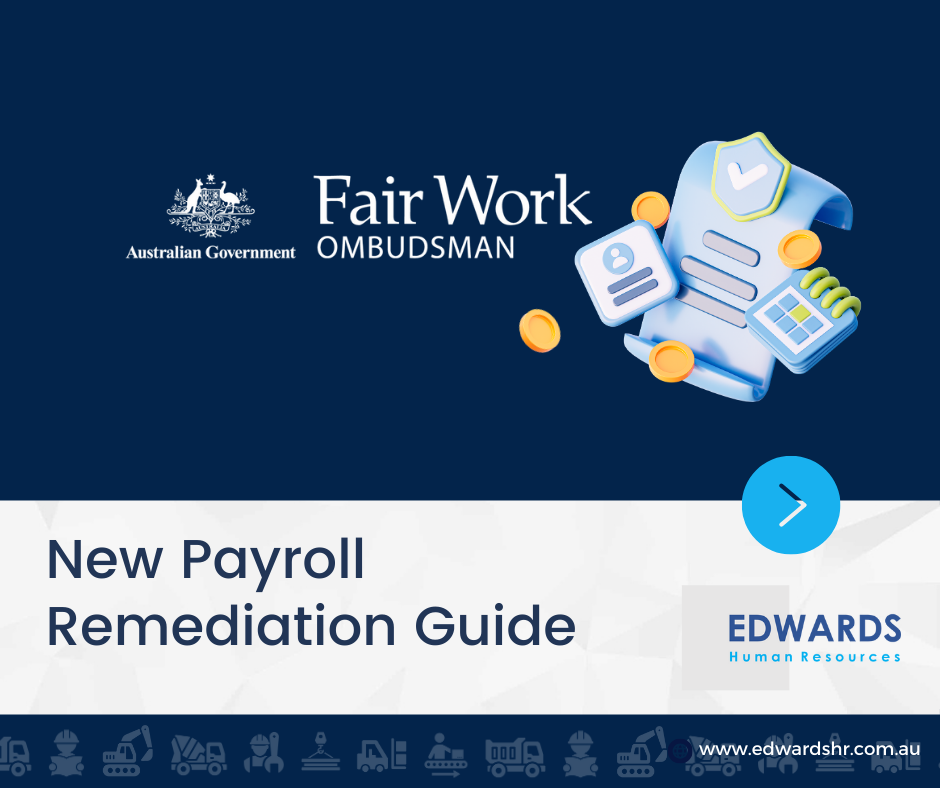- Published
Are you recording your employees’ hours properly? And just as importantly, are those records consistent, accurate, and easy to access?
With recent headlines about Coles and Woolworths facing scrutiny over wage issues, the spotlight is back on payroll compliance. As HR consultants, one of the most common issues we uncover in payroll reviews is poor or inconsistent record keeping.
This guide outlines what the law requires and what best practice looks like.
What the Law Says
Under the Fair Work Act 2009, employers must keep time and wage records for at least 7 years.
These records must:
- Be readily accessible,
- Be legible,
- Written in English,
- Accurately show hours worked, including overtime where relevant,
- Record pay rates, gross and net amounts paid, and any entitlements such as allowances or leave.
Failure to keep accurate records can lead to penalties, back pay claims, or disputes that could have been avoided with proper systems in place. In some cases, if records aren’t kept properly, the law may presume an employee’s version of events is correct unless the employer can prove otherwise.
Why It Matters
Keeping detailed and accurate records is about more than avoiding fines.
It helps you:
- Stay compliant with Fair Work requirements
- Resolve payroll disputes quickly
- Build trust with employees through transparency
- Avoid costly underpayment claims
Further, Australia’s wage theft laws require employers to have a ‘positive compliance culture’, meaning payroll compliance (including record keeping) should be a priority that is constantly on your radar.
Best Practice for Time Tracking and Records
- Use a reliable system
Manual timesheets, digital apps, or electronic clock-in systems can all work. Whatever method you use, make sure it is accurate, consistent, and secure. - Record start, finish, and breaks
Records should show actual start and finish times, as well as meal breaks. Also ensure you have a record of overtime worked. - Travel and Allowances
This is one that is often not documented accurately. Whether someone travels regularly or occasionally, or receives allowances regularly or occasionally, ensure your records reflect this for each and every occasion they apply. - Keep records consistent
Use the same method across your workforce, if possible. Inconsistencies make it harder to verify accuracy. - Train managers and staff
Make sure everyone understands how to record their time correctly and managers know how to read their payroll reports prior to approval. A clear process prevents gaps and avoids last-minute corrections. - Audit regularly
Review your records against payslips regularly to make sure everything matches up. Don’t wait for a Fair Work Inspector to knock on your door.
If you’re unsure whether your current approach meets Fair Work standards, a payroll review can give you peace of mind and highlight areas to improve.
With the recent Coles and Woolworths decisions, the Fair Work Ombudsman is reviewing its guidance for employers. This could lead to updates to how employers need to manage time recording, pay calculations, and record keeping.
We encourage businesses to keep an eye on Fair Work’s updates, staying informed and following best practice is the safest way to ensure compliance.
Sign up to our e-newsletter to get all the latest HR and compliance changes straight to your inbox.
Remember, wage theft is serious and under Australia’s laws:
- Individuals can face up to 10 years in prison and/or $1.65 million, or three times the underpayment amount
- Companies can also face up to $8.25 million or three times the underpayment amount
Consider speaking with Edwards HR about how we can help ensure you have the peace of mind that your payroll practices are acceptable.
Get in touch with our team today to discuss how we can help.
Stop Payroll Mistakes and Pay Your Team Correctly
We design and deliver engaging, tailored training to grow your people, strengthen your culture and support compliance.
Every business is different, so we customise our training specifically for yours. As experts in heavy industries, we understand your unique challenges.




